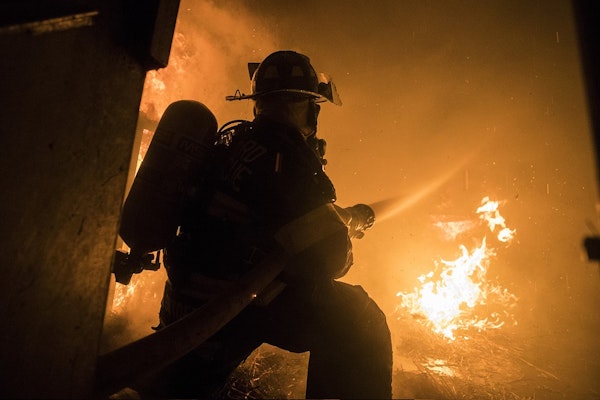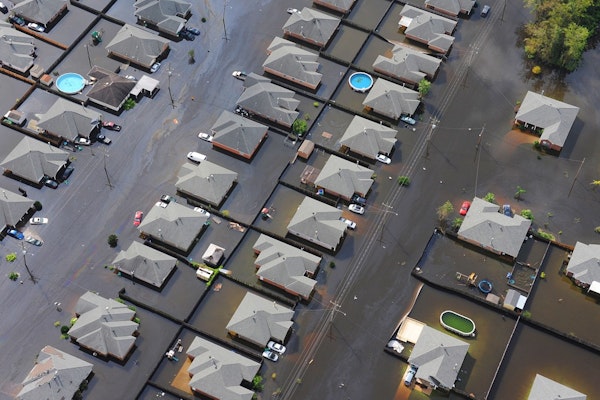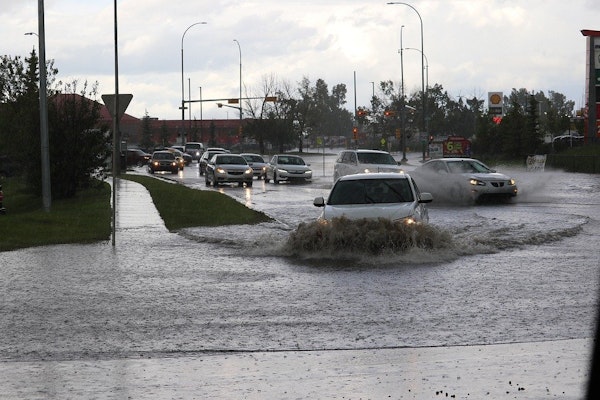
Niches: The Future of the Insurance Market?
Skyward Specialty’s CEO Andrew Robinson shares insights on the power of focusing on niche markets in insurance.
July 19, 2024
Insurance Industry
Risk Management
Technology
Underwriting
California

Keys to Successful Digital Transformation for Insurance Firms
Assessing the market, balancing technology and business, and committing to growth are key steps in successful digital transformation.
July 17, 2024
Life & Health
Risk Management
Technology
Underwriting

Rite Aid Data Breach Impacts 2.2 Million Customers
Rite Aid, the third-largest US drug store chain, revealed that a data breach exposed sensitive information of over 2.2 million customers, including names, addresses, birth dates, and driver’s license numbers.
July 16, 2024
Insurance Industry
Litigation
Risk Management
Technology
Maine
Massachusetts
Oregon
Vermont

Investment in GenAI Pressures Other IT Projects
Generative AI investments are surging, squeezing other IT projects as companies aim for higher ROI and digital transformation.
July 16, 2024
Insurance Industry
Risk Management
Technology

Rising Replacement Costs Demand Strategic Adjustments from Insurers
As inflation and global conflicts escalate replacement costs, brokers and underwriters must effectively communicate economic trends and risk factors to clients to ensure adequate coverage and transparent pricing.
July 16, 2024
Insurance Industry
Property
Risk Management
Maryland

New Study Uncovers State Variations in Workers’ Compensation for First Responders’ Mental Health
Recent research from the FIRST Center highlights significant differences in state workers’ compensation laws for first responders with mental health conditions, emphasizing the need for uniform presumption laws.
July 16, 2024
Legislation & Regulation
Life & Health
Risk Management
Workers' Compensation
Alaska
Arizona
California
Colorado
Connecticut

Moody’s RMS Estimates $2.5-$4.5 Billion in U.S. Insured Losses from Hurricane Beryl
Moody’s RMS estimates U.S. insured losses from Hurricane Beryl between $2.5 and $4.5 billion, with NFIP losses under $300 million and non-U.S. losses not exceeding $1.5 billion.
July 16, 2024
Catastrophe
Insurance Industry
Property
Risk Management
Texas

Understanding 2024 Insurance Industry Priorities: AI, Climate Change, and Inflation Lead the Way
The 2024 Global Priorities Report from the IIS highlights key concerns for insurance executives, including artificial intelligence, climate change, inflation, and cybersecurity, along with strategies for operational efficiency and growth opportunities.
July 16, 2024
Insurance Industry
Risk Management
Technology

Understanding Hurricane Categories: Why Even "Weaker" Storms Can Be Dangerous
While often dismissed, Category 1 hurricanes and tropical storms can cause significant damage and fatalities, emphasizing the need for a comprehensive understanding of storm impacts beyond mere wind strength.
July 15, 2024
Catastrophe
Insurance Industry
Risk Management
Technology
Florida
Louisiana
New York
Texas

Florida Court Rules Employer Entitled to Full Workers’ Compensation Lien
A Florida appellate court has ruled that Captain D’s LLC is entitled to fully collect on its workers’ compensation lien after an injured worker failed to prove she didn’t receive full value from her injuries in a third-party settlement.
July 15, 2024
Legislation & Regulation
Litigation
Risk Management
Workers' Compensation
Florida

Nearly 300,000 Without Power in Texas One Week After Hurricane Beryl
Hundreds of thousands of Texans remain without power one week after Hurricane Beryl caused widespread damage. Gov. Greg Abbott has demanded an explanation from Houston’s main electricity supplier.
July 15, 2024
Catastrophe
Legislation & Regulation
Risk Management
Technology
Texas

AT&T Pays Hacker $370,000 to Delete Stolen Customer Data
AT&T paid a hacker $370,000 to delete stolen call and text records of millions of customers. The hacker, part of the ShinyHunters group, claims to have wiped the only complete dataset, but some risks remain.
July 15, 2024
Fraud
Litigation
Risk Management
Technology

White House Elevates Infrastructure to Combat Intensifying Floods
The Biden administration finalizes a policy requiring FEMA-funded reconstruction projects to be elevated above local flood levels to mitigate damage from intensifying floods due to climate change.
July 11, 2024
Catastrophe
Legislation & Regulation
Property
Risk Management
Texas

Addressing Rising Insurance Costs Through Education and Resilience
Triple-I emphasizes the importance of consumer education and community resilience to mitigate rising insurance costs driven by inflation, litigation, and natural disasters.
July 11, 2024
Education & Training
Legislation & Regulation
Property
Risk Management
California
Florida
Louisiana

Timely Filing of Post-Trial Motions: Illinois Appellate Court Upholds 30-Day Deadline
The Illinois Appellate Court emphasizes the necessity of filing post-trial motions within 30 days, even if final judgments are pending on other counts, underscoring the jurisdictional limits of trial courts.
July 11, 2024
Education & Training
Legislation & Regulation
Litigation
Risk Management
Illinois





